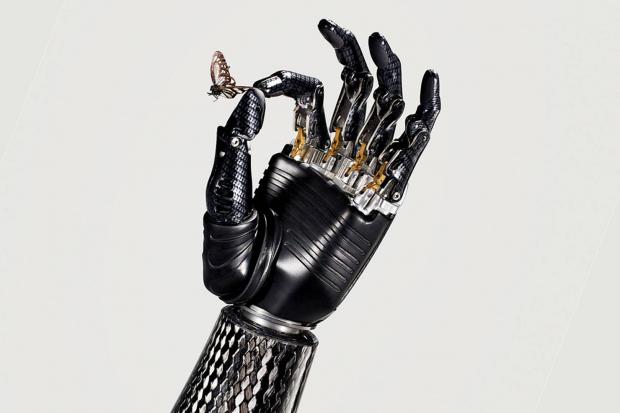
Breaking News
 Sunday FULL SHOW: Newly Released & Verified Epstein Files Confirm Globalists Engaged...
Sunday FULL SHOW: Newly Released & Verified Epstein Files Confirm Globalists Engaged...
 Fans Bash Bad Bunny's 'Boring' Super Bowl Halftime Show, Slam Spanish Language Performan
Fans Bash Bad Bunny's 'Boring' Super Bowl Halftime Show, Slam Spanish Language Performan
 Trump Admin Refuses To Comply With Immigration Court Order
Trump Admin Refuses To Comply With Immigration Court Order
 U.S. Government Takes Control of $400M in Bitcoin, Assets Tied to Helix Mixer
U.S. Government Takes Control of $400M in Bitcoin, Assets Tied to Helix Mixer
Top Tech News
 SpaceX Authorized to Increase High Speed Internet Download Speeds 5X Through 2026
SpaceX Authorized to Increase High Speed Internet Download Speeds 5X Through 2026
 Space AI is the Key to the Technological Singularity
Space AI is the Key to the Technological Singularity
 Velocitor X-1 eVTOL could be beating the traffic in just a year
Velocitor X-1 eVTOL could be beating the traffic in just a year
 Starlink smasher? China claims world's best high-powered microwave weapon
Starlink smasher? China claims world's best high-powered microwave weapon
 Wood scraps turn 'useless' desert sand into concrete
Wood scraps turn 'useless' desert sand into concrete
 Let's Do a Detailed Review of Zorin -- Is This Good for Ex-Windows Users?
Let's Do a Detailed Review of Zorin -- Is This Good for Ex-Windows Users?
 The World's First Sodium-Ion Battery EV Is A Winter Range Monster
The World's First Sodium-Ion Battery EV Is A Winter Range Monster
 China's CATL 5C Battery Breakthrough will Make Most Combustion Engine Vehicles OBSOLETE
China's CATL 5C Battery Breakthrough will Make Most Combustion Engine Vehicles OBSOLETE
 Study Shows Vaporizing E-Waste Makes it Easy to Recover Precious Metals at 13-Times Lower Costs
Study Shows Vaporizing E-Waste Makes it Easy to Recover Precious Metals at 13-Times Lower Costs
Engineer demonstrates £500 bionic hand he built using artificial intelligence...

A Texan man has built his own bionic hand using artificial intelligence (AI) after three years of research.
After finding most bionic hands can cost up to $150,000, Ryan Saavedra, 27, set out to create one at a fraction of the cost.
The prosthetic he created, called the Globally Available Robotic Arm (GARA), measures electrical activity of muscle tissue – a method called electromyography (EMG) – and combines this with AI to predict hand movements.
When attached to the limb of an amputee, it is capable of intuitive finger movements and clasping objects such as cups.
Saavedra's company, Alt-Bionics, has already made a prototype that costs less than $700 (£520) to produce, and is now working to commercialise the device.
Alt-Bionics, which was founded in June 2020, will be manufacturing bionic hands for those with below-elbow amputations or congenital disorders, and later plans to expand to other areas of prosthetics.
It aspires to develop 'affordable bionic prostheses for those who could otherwise not afford them'.
'I learned that these devices can range anywhere from $10k to $150k,' said Saavedra, CEO and founder of Alt-Bionics and an engineering graduate at the University of Texas at San Antonio.
'As an engineer, and having worked with some familiar components, this didn't seem right to me.
'I decided to try to learn as much as I could about bionic prostheses and set out to try and build one for much less.'

 Smart dust technology...
Smart dust technology...

